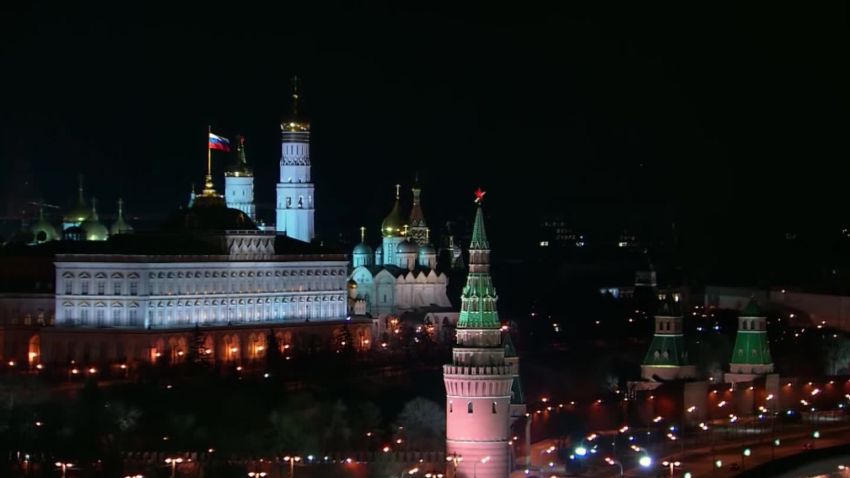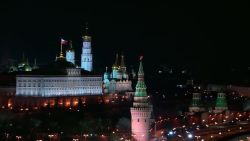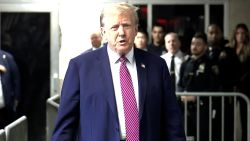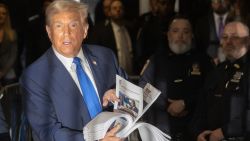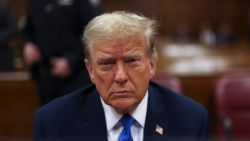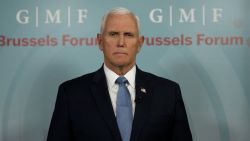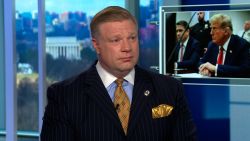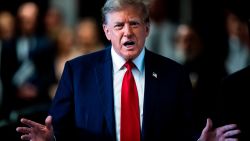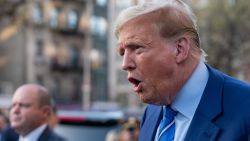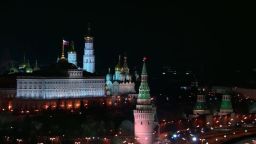A new US intelligence report that finds Russia interfered in the 2020 election to help Donald Trump and hurt Joe Biden also underscores a fundamental truth: The gravest threat to US democracy comes from within.
The report, released by Director of National Intelligence Avril Haines, finds that Moscow sought to inject misleading information about Biden into the campaign through officials and others close to Trump.
The real bombshell it contains is not the confidence of the spy agencies that Russia hoped to subvert American democracy. It is that US intelligence experts effectively confirmed that for the second election in a row, Trump acolytes repeatedly used, knowingly or otherwise, misinformation produced by the spies of one of America’s most sworn foreign adversaries to try to win a US election.
And given the advantage of hindsight, the latest intelligence assessment is not just an isolated example of incriminating evidence against Russia and its efforts to create chaos and discord within the United States.
For all of the stale US debate about whether Trump and his aides “colluded” with Russia, there are now multiple reports, intelligence assessments and other known details to expose a damning reality: Moscow with its election meddling, Trump acolytes pushing false claims of voter fraud and his GOP supporters in the states now passing voter suppression laws share the same goal – the denigration of the US democratic system.
Biden's First 100 Days
The readiness of the former President’s men to use Russian misinformation in 2020 – while denying collusion in 2016 – was but one prong of the assault on the integrity of US elections. After all, it came as Trump was challenging democratic customs that form the bedrock of American freedoms.
He spent months seeking to discredit the fairness of the vote – the sacred core of US democracy – to hedge against his eventual loss. He later denied his fair-and-square defeat, incited the deadly US Capitol insurrection – which sought to disrupt Biden’s transition to power – and is using his sway over his party to force future Republican candidates to sign up to his big lie of widespread voter fraud.
Thus, the candidate who Moscow helped to win the 2016 election had four years later become the primary destructive force aimed at US democracy.
It ought to be concerning that the sentiments of many Republicans who falsely decry the fairness of the current US electoral system appear to coincide with those of Russian President Vladimir Putin.
Ultimately, the most alarming implication of the release of Tuesday’s report is that it may not be necessary for Russia to interfere in the 2024 presidential election in the same way as in 2016 and 2020.
From Trump’s lies about a stolen second term to claims by some Republican governors that making it harder to vote makes an election more democratic, some Americans are already doing far more themselves to damage the US system than Moscow can.
Trump’s China claims discredited
The report finds that Iran also tried to interfere in the election but that no foreign power – not even Russia – sought to change vote totals or attack electoral infrastructure. US intelligence agencies also assessed that China considered trying to influence the result but did not do so, largely undercutting false claims to the contrary by Trump, which his administration knew to be untrue but still made in the days before Biden’s victory.
While the attempts to sway the opinions of American voters are serious – and will likely draw US sanctions, according to White House officials – they ultimately did not succeed. Biden prevailed in the election and Moscow did not go as far as it had to damage the previous Democratic nominee, Hillary Clinton, four years earlier with its hacking scheme.
But the report comes with troubling new assessments of how Moscow was yet again able to use those around Trump – often in plain sight – in an effort to discredit an American election and to try to influence the result.
It finds, for instance, that Putin had “purview” over the activities of Andrii Derkach, a Ukrainian legislator who the US says is an active Russian agent. Derkach collaborated with Trump’s attorney Rudy Giuliani to spread disinformation during Trump’s first impeachment. That drama was caused by the ex-President’s own effort to coax Kiev into probing Biden over false allegations perpetrated by people close to Moscow.
The DNI report didn’t mention Giuliani by name.
But it said: “A key element of Moscow’s strategy this election cycle was its use of people linked to Russian intelligence to launder influence narratives – including misleading or unsubstantiated allegations against President Biden – through US media organizations, US officials and prominent US individuals, some of whom were close to former President Trump and his administration.”
Democratic Sen. Mark Warner of Virginia, the Senate Intelligence Committee chairman, said Tuesday that the report did not leave a lot to the imagination.
“It doesn’t take a lot of sophisticated analysis to figure out who some of those individuals – hopefully again unknowingly – (are who were) manipulated by the Russians,” Warner said on Capitol Hill.
In some ways, the information released parallels the finding of special counsel Robert Mueller’s report, which showed that those around Trump used information conjured up by the Russians in 2016 – including emails stolen from Democratic servers that damaged Clinton.
Mueller wrote that although he could not prove Trump aides “conspired or coordinated” with Russia, the campaign “expected that it would benefit electorally from information stolen and released through Russian efforts.”
There is another pattern here. Either gullible aides around Trump were oblivious to being manipulated by foreign operatives – or they were not being willing to probe where the misinformation came from. And those alternatives put the best possible spin on their behavior.
Russian misinformation
The new report also found that Russia’s primary effort in 2020 formed around a narrative that Biden and his family had corrupt ties to Ukraine. There has been no evidence of criminal activity by the current President nor by his son Hunter, who worked on the board of a Ukrainian energy company.
But, incredibly, this Russia misinformation ended up being the centerpiece of Trump’s campaign against Biden in the closing days of the election. The report does not say so, but this material was used by Trump personally in many campaign appearances – an extraordinary marker of success for an intelligence operation hatched by a foreign power.
The report also makes clear that Derkach and another Russian influence agent, Konstantin Kilimnik, used willing conservative media networks in the United States to launder their deceptions and false information about Biden.
Putin, a former KGB agent who regarded the end of the Soviet Union as one of history’s worst disasters, has long sought to damage the West by exploiting its own political and societal divides. The January 2017 US intelligence assessment into meddling in the prior election found, for example, that the Russians wanted to “undermine the US-led international liberal order.” And Mueller said Putin was motivated by a desire to “provoke and amplify political discord in the United States.”
More on Voting Rights
The nature of such disinformation campaigns – which unfold in the smoke and mirrors world where espionage, fake news and misinformation meet – is that they continue to deliver for months and years afterward for a very modest investment.
For example, Trump’s inevitable protests that he is yet again being targeted by a new “Russia hoax” will further poison the reputation of US intelligence agencies – the sworn rivals of Russia’s spy services – among the ex-President’s supporters.
Trump’s propaganda may also serve to further foment distrust among his supporters with the US political system itself – a feeling being exploited by GOP state lawmakers all over the United States to justify voter suppression laws supposedly designed to restore “integrity” to US elections.
From Georgia to Arizona and Texas to Iowa, Trump’s allies are attempting to shorten early voting hours, limit Sunday polling – used disproportionately by Black voters – and roll back mail-in voting, which made it easier for more Americans to vote in 2020 in a record popular-vote turnout.

